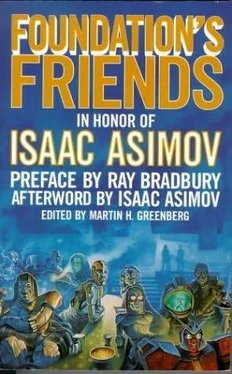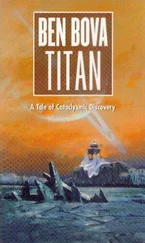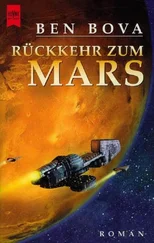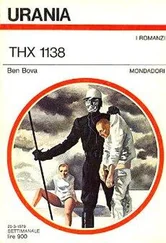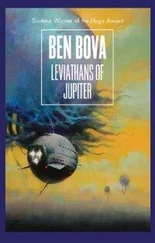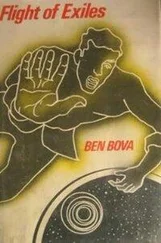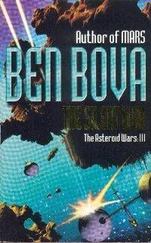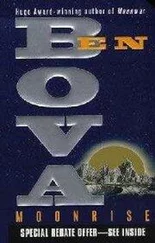Ben Bova - Foundation’s Friends
Здесь есть возможность читать онлайн «Ben Bova - Foundation’s Friends» весь текст электронной книги совершенно бесплатно (целиком полную версию без сокращений). В некоторых случаях можно слушать аудио, скачать через торрент в формате fb2 и присутствует краткое содержание. Год выпуска: 1989, ISBN: 1989, Издательство: Tor Books, Жанр: Фантастика и фэнтези, на английском языке. Описание произведения, (предисловие) а так же отзывы посетителей доступны на портале библиотеки ЛибКат.
- Название:Foundation’s Friends
- Автор:
- Издательство:Tor Books
- Жанр:
- Год:1989
- ISBN:ISBN: 0-312-93174-3
- Рейтинг книги:3 / 5. Голосов: 1
-
Избранное:Добавить в избранное
- Отзывы:
-
Ваша оценка:
- 60
- 1
- 2
- 3
- 4
- 5
Foundation’s Friends: краткое содержание, описание и аннотация
Предлагаем к чтению аннотацию, описание, краткое содержание или предисловие (зависит от того, что написал сам автор книги «Foundation’s Friends»). Если вы не нашли необходимую информацию о книге — напишите в комментариях, мы постараемся отыскать её.
Foundation’s Friends — читать онлайн бесплатно полную книгу (весь текст) целиком
Ниже представлен текст книги, разбитый по страницам. Система сохранения места последней прочитанной страницы, позволяет с удобством читать онлайн бесплатно книгу «Foundation’s Friends», без необходимости каждый раз заново искать на чём Вы остановились. Поставьте закладку, и сможете в любой момент перейти на страницу, на которой закончили чтение.
Интервал:
Закладка:
Fletcher said, “The reason I’ve come here”
“We can go into all that later, can’t we, Lew? First come into the greenhouse with me. There’s something I want to show you. Nobody else has seen it yet, in fact.”
“Well, if you-”
“Insist, yes. Come. I promise you, it’s extraordinary.”
He turned and led the way through the intricate pathways of the apartment. The sprawling many-roomed penthouse was furnished in the most offhand way, cheap student furniture badly cared for. Cats wandered everywhere, five, six, eight of them, sharpening their claws on the upholstery, prowling in empty closets whose doors stood ajar, peering down from the tops of bookcases containing jumbled heaps of coverless volumes. There was a rank smell of cat urine in the air.
But then suddenly Asenion turned a corridor and Fletcher, following just behind, found himself staring into what could have been an altogether different world. They had reached the entrance to the spectacular glass-walled extension that had been wrapped like an observation deck around the entire summit of the building. Beyond, dimly visible inside, Fletcher could see hundreds or perhaps thousands of strange-looking plants, some hanging from the ceiling, some mounted along the sides of wooden pillars, some rising in stepped array on benches, some growing out of beds set in the floor.
Asenion briskly tapped out the security-combination code on a diamond-shaped keyboard mounted in the wall, and the glass door slid silently back. A blast of warm humid air came forth.
“Quickly!” he said. “Inside!”
It was like stepping straight into the Amazon jungle. In place of the harsh, dry atmosphere of a Manhattan apartment in mid-winter there was, abruptly, the dense moist sweet closeness of the tropics, enfolding them like folds of wet fabric. Fletcher almost expected to hear parrots screeching overhead.
And the plants! The bizarre plants, clinging to every surface, filling every available square inch!
Most of them followed the same general pattern, rosettes of broad shining strap-shaped leaves radiating outward from a central cup-shaped structure deep enough to hold several ounces of water. But beyond that basic area of similarity they differed wildly from one another. Some were tiny, some were colossal. Some were marked with blazing stripes of yellow and red and purple that ran the length of their thick, succulent leaves. Some were mottled with fierce blotches of shimmering, assertive, bewilderingly complicated combinations of color. Some, whose leaves were green, were a fiery scarlet or crimson, or a somber, mysterious blue, at the place where the leaves came together to form the cup. Some were armed with formidable teeth and looked ready to feed on unwary visitors. Some were topped with gaudy spikes of strangely shaped brilliant-hued flowers taller than a man, which sprang like radiant spears from their centers.
Everything glistened. Everything seemed poised for violent, explosive growth. The scene was alien and terrifying. It was like looking into a vast congregation of hungry monsters. Fletcher had to remind himself that these were merely plants, hothouse specimens that probably wouldn’t last half an hour in the urban environment outside.
“These are bromeliads, “ Asenion said, shaping the word sensuously in his throat as though it were the finest word any language had ever produced. “Tropical plants, mainly. South and Central America is where most of them live. They tend to cling to trees, growing high up in the forks of branches, mainly. Some live at ground level, though. Such as the bromeliad you know best, which is the pineapple. But there are hundreds of others in this room. Thousands. And this is the humid room, where I keep the guzmanias and the vrieseas and some of the aechmeas. As we go around, I’ll show you the tillandsias -they like it a lot drier-and the terrestrial ones, the hechtias and the dyckias, and then over on the far side-”
“Ike,” Fletcher said quietly.
“You know I’ve never liked that name.”
“I’m sorry. I forgot.” That was a lie. Asenion’s given name was Ichabod. Neither Fletcher nor anyone Fletcher knew had ever been able to bring himself to call him that. “Look, I think what you’ve got here is wonderful. Absolutely wonderful. But I don’t want to intrude on your time, and there’s a very serious problem I need to discuss with-”
“First the plants,” Asenion said. “Indulge me.” His eyes were glowing. In the half-light of the greenhouse he looked like a jungle creature himself, exotic, weird. Without a moment’s hesitation, he pranced off down the aisle toward a group of oversized bromeliads near the outer wall. Willy-nilly. Fletcher followed.
Asenion gestured grandly.
“Here it is! Do you see? Aechmea asenionii! Discovered in northwestern Brazil two years ago-I sponsored the expedition myself-of course. I never expected them to name it for me. but you know how these things sometimes happen-”
Fletcher stared. The plant was a giant among giants, easily two meters across from leaf-tip to leaf-tip. Its dark green leaves were banded with jagged pale scrawls that looked like the hieroglyphs of some lost race. Out of the central cup, which was the size of a man’s head and deep enough to drown rabbits in, rose the strangest flower Fletcher ever hoped to see, a thick yellow stalk of immense length from which sprang something like a cluster of black thunderbolts tipped with ominous red globes like dangling moons. A pervasive odor of rotting flesh came from it.
“The only specimen in North America!” Asenion cried. “Perhaps one of six or seven in the world. And I’ve succeeded in inducing it to bloom. There’ll be seed, Lew, and perhaps there’ll be offsets as well-I’ll be able to propagate it, and cross it with others-can you imagine it crossed with Aechmea chantinii. Fletcher? Or perhaps an interspecific hybrid? With Neoregelia carcharadon. say? No. Of course you can’t imagine it. What am I saying? But it would be spectacular beyond belief. Take my word for it. “
“I have no doubt.”
“It’s a privilege, seeing this plant in bloom. But there are others here you must see too. The puyas-the pitcairnias-there’s a clump of Dyckia marnierlapostollei in the next room that you wouldn’t believe-”
He bubbled with boyish enthusiasm. Fletcher forced himself to be patient. There was no help for it: he would simply have to take the complete tour.
It went on for what seemed like hours, as Asenion led him frantically from one peculiar plant to another, in room after room. Some were actually quite beautiful, Fletcher had to admit. Others seemed excessively flamboyant, or grotesque, or incomprehensibly ordinary to his untutored eye, or downright grotesque. What struck him most forcefully of all was the depth of Asenion’s obsession. Nothing in the universe seemed to matter to him except this horde of exotic plants. He had given himself up totally to the strange world he had created here.
But at last even Asenion’s manic energies seemed to flag. The pace had been merciless, and both he and Fletcher, drenched with sweat and gasping in the heat, paused for breath in a section of the greenhouse occupied by small gray gnarly plants that seemed to have no roots, and were held to the wall by barely visible wires.
Abruptly Asenion said, “All right. You aren’t interested anyway. Tell me what you came here to ask me, and then get on your way. I have all sorts of things to do this afternoon. “
“It’s about plutonium-186,” Fletcher began.
“Don’t be idiotic. That’s not a legitimate isotope. It can’t possibly exist. “
“I know,” Fletcher said. “But it does.”
Quickly, almost desperately, he outlined the whole fantastic story for the young physicist-turned-botanist. The mysterious substitution of a strange element for tungsten or osmium in various laboratories, the tests indicating that its atomic number was that of plutonium but its atomic weight was far too low, the absurd but necessary theory that the stuff was a gift from some parallel universe and-finally-the fact that the new element, stable when it first arrived, rapidly began to undergo radioactive decay in a startlingly accelerative way.
Читать дальшеИнтервал:
Закладка:
Похожие книги на «Foundation’s Friends»
Представляем Вашему вниманию похожие книги на «Foundation’s Friends» списком для выбора. Мы отобрали схожую по названию и смыслу литературу в надежде предоставить читателям больше вариантов отыскать новые, интересные, ещё непрочитанные произведения.
Обсуждение, отзывы о книге «Foundation’s Friends» и просто собственные мнения читателей. Оставьте ваши комментарии, напишите, что Вы думаете о произведении, его смысле или главных героях. Укажите что конкретно понравилось, а что нет, и почему Вы так считаете.
